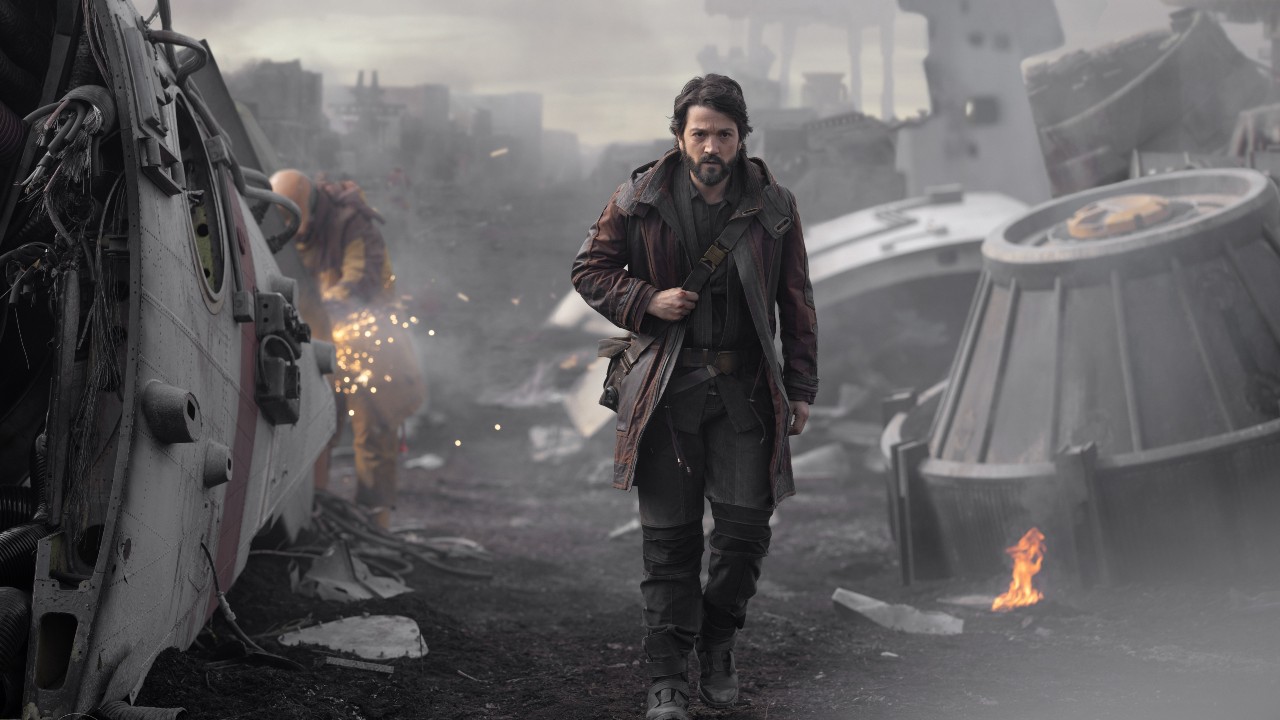If there’s anything close to national mythology in America nowadays, it’s Marvel. This may be depressing, but we should nevertheless face the fact and make the best of it. Before that, it was Star Wars, which is still an incredibly profitable business, even as it is failing. They’re both Disney properties, which now make up close to half the box office and own the allegiance and imaginations of American children. We’re moving to monopoly, as in all other businesses—Facebook, Google, etc.
Star Wars, however, has the advantage of being multigenerational; its stories have been appearing on screens large and small for 45 years, so we may expect it to last longer. Admittedly, the trilogy of movies that started with The Force Awakens on Christmas 2015 has been a disappointment. The first movie brought out a lot of good will, or perhaps hope against hope, achieving a shocking success, grossing more than $900 million. But Americans quickly stopped caring, and the next episode, The Last Jedi, made a third less money. Then the end of the trilogy, The Rise Of Skywalker, made less again, by another hundred million dollars, leaving it barely above half the starting point. In parallel, Disney also managed to turn the charming swashbuckler Han Solo into a dumb, dour figurehead in Solo and thus achieved the impossible—it made a Star Wars movie that actually lost money.
It’s crass in a way to talk about success and failure purely in terms of money, but think of it differently: Americans vote with their wallets. Clearly, audiences want something better, and they show up for these celebrated stories only to be baffled and perhaps even humiliated. The American press and the Disney corporation have both taken to the habit of blaming audiences for not liking the entertainment! But audiences are largely right to reject mediocre, often gloomy, sometimes shrill fare, and hopefully they will also embrace the better things available.
This is the dark overall situation. Yet, in all this nonsense, there was one impressive moment—Rogue One, which was even more successful than The Rise Of Skywalker. Audiences enjoyed a story without any of the famous Star Wars protagonists as characters, indeed without Jedis, and without much fanfare in Hollywood or the press. An underdog, if you will, which Americans of course love, and which succeeded by dramatizing the dark mood in America while insisting on the nobility and hope that have long defined the most memorable stories coming out of Hollywood.
Rogue One is not merely entertainment. Its story brings out all-American virtues in an unusual way, through a vision of a world of imperial tyranny where republican self-government has not only been abolished but defeated and, therefore, humiliated. It is in danger of becoming forgotten altogether, and civilization along with it. Without that humanizing faith, what’s left for noble men and women is the temptation to commit every conceivable or practicable act of violence against tyranny, indiscriminately destroying anything at hand; or else, resigning oneself to slavery. This is intended to show us what we stand to lose and to present young men and women with the emotional power they need if they are to experience at all what is at stake in American life.
Rogue One is therefore much more serious than some of the other Star Wars stories, because it looks to the fundamental human and political issues involved in the story, not the parts that tend to turn into a soap opera. It accordingly establishes dramatic tension by looking to the difference between terrorists and freedom fighters, and encourages audiences to admire a willingness to sacrifice oneself to save others rather than merely a determination to kill. This has eluded much of our educated class since at least the ’50s, as revolutionary chic has turned them into lovers of savage violence across the planet.
Now, since the small rebellion in Rogue One doesn’t have Jedi leaders, they’re not going to be able to win against the evil empire; but this doesn’t make them nihilistic—reckless and lawless. The ultimate moral stake here is to affirm certain limits to politics in light of human nature. It’s a very rare thing in our storytelling, to educate audiences how to deal with defeat. It’s perhaps also necessary to remind audiences why the Jedi might be admirable and, with them, what our young might learn from their love of Star Wars. Rogue One points to the difference between a serious artistic effort in the context of our entertainment industry and mere success worship.
This brings us to the new Disney+ series Andor, named for one of the sacrificial heroes of Rogue One, Cassian Andor, and aiming to build on that much more impressive beginning for a somewhat different kind of Star Wars story, less glamorous, less addicted to selling toys, and more concerned with bringing out questions of virtue through characterization. Altogether, Andor is about a man coming from a life of crime and suffering, yet rising to the nobility of sacrifice. It has an ugly similarity to the recent series Kenobi, an execution in the opening episode, so it is not perfect by any means. But since we know Andor dies in Rogue One, even this violent beginning makes sense—our protagonist will eventually expiate it with his own death.
Cassian’s mission at the beginning of the series is to save his long-lost sister from what he fears is a life of prostitution. He uses his considerable skills as mechanic, thief, and swashbuckler to achieve that commendable end, but he has nothing noble about him except the characterization of actor Diego Luna. We see that he does not deserve his miserable poverty in the outskirts of empire and is somehow made for greater things, which inevitably means dangerous things. We discover over the course of the story how he becomes aware of this possibility and what it takes to convince him to embrace something as abstract as a cause.
The name Cassian is derived from Cassius, a famous Latin name, itself associated with the drama of the fall of a republic and the rise of an empire. This name of destiny helps audiences see in the protagonist a movement from a mercenary job, the robbing of an imperial treasury, which dominates the first season, to its deeper implications, becoming part of a cause that requires much more than one act of daring, however competently executed. Stealing money is as necessary for Cassian as it was for the rebellion, allowing the rebels to be somewhat less moralistic and him less cynical, until he finds an opportunity to show his natural abilities as a ruler. The next and final season will be dedicated to showcasing that leadership, going back to the idea of building up a character for audiences rather than amazing them with little more than celebrity.
Andor was created by Tony Gilroy, who wrote Rogue One, having acquired fame as writer of the Bourne trilogy, with help from his brother Dan Gilroy, who made two good dramas, Nightcrawlers and Roman J. Israel, Esq. There’s reason to hope that they can do more than entertain American teenagers and their families—this is the only Star Wars story in quite some time that might really appeal to young men.

